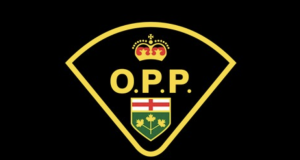 The East Algoma Ontario Provincial Police (OPP) would like to remind the public that there are many schemes being used to defraud the public and businesses. If you receive any unsolicited communication by any means asking for money to be given, be cautious and suspicious.
The East Algoma Ontario Provincial Police (OPP) would like to remind the public that there are many schemes being used to defraud the public and businesses. If you receive any unsolicited communication by any means asking for money to be given, be cautious and suspicious.
Emergency scams, sometimes called grandparent scams, involve fraudsters contacting seniors or family members claiming that their grandchild or a loved one was in an accident, charged with an offence such as a “DUI” and drug offences or, and in some cases, is ill with COVID-19. Fraudsters will claim that they are law enforcement officials, lawyers and even impersonate the grandchild/loved one. They’ll proceed to advise the victim that a payment for bail or fine is required immediately in order for the family member to avoid going to jail. Fraudsters will often claim that there is a “gag order” and the victim cannot discuss the occurrence with anyone. If the victim agrees to pay the requested amount, suspects will arrange to pick up the funds in person or will ask the victim to send cash in the mail.
Another variation of the emergency scam can be by means of email. Victims report receiving an email claiming to come from one of their email contacts. The email will ask for a favour: purchase gift cards because they’re ill or have lost their wallet. In some cases, the sender’s email account has been compromised or contact list has been obtained by the fraudsters.
A new variation of the emergency scam is about a fraudulent emergency text or social media message. The fraudster will claim to be a family member or loved one advising that their cellphone is broken or has been dropped in water. The fraudster will then provide an alternate phone number to send a text. The fraudster will proceed to ask for a favour by requesting funds from the victim to repair the broken phone or to pay a bill.
Warning Signs – How to protect yourself
· If you receive a suspicious phone call claiming to be from a family member in an emergency situation, hang up the phone and contact them directly on the number you have in your contact list
· If the caller claims to be a law enforcement official and asked you to pay a fine or bail, hang up and call your police directly
· Listen to that inner voice that is screaming at you: “This doesn’t sound right”.
· Be careful what you post online. Scammers can use details shared on social media platforms and dating sites for targeting purposes. Suspects can easily gather names and details about your loved ones
· Be suspicious of telephone calls that require you to immediately take action and request bail money for a family member in distress
· Be careful with caller ID numbers that look familiar. Scammers use technology to disguise the actual number they are calling from (spoof) and make it appear as a trusted phone number
· If you receive an email or text message claiming to be from a friend or loved one asking for money, make the outgoing call to the person by looking up the legitimate phone number you have for them in your contact list.
· Use unique and strong passwords for all social media and email accounts.
Remember, any legitimate agency will NEVER request a payment by wire transfer, online currency such as bitcoin, pre-paid credit cards or pre-paid gift cards such as Google Play, iTunes, Vanilla, etc. Scammers will ask to purchase large denomination gift cards as form of payment. Also, they will ask to send cash, but hidden inside pages of a book, then box the book and wrap it in an excessive amount of packing tape.
“Awareness is key when it comes to recognizing frauds and scams. There are so many types out there but the better educated the public are, the less chance they have to fall victim to these ruthless scammers. Don’t keep it a secret – talk to a friend, family member, neighbour, or police before making any decisions to send money to people you don’t know”, says OPP Community Safety Officer Phil Young.
If you believe that someone is posing as a fraudster on the phone, hang up. Also, you can report it through the Canadian Anti-Fraud Centre at 1-888-495-8501. If you are a victim of a fraud or scam, contact your local police agency.
- East Algoma OPP – Charges laid in collision - February 21, 2026
- Nipigon OPP – Arrest made after stopping driver for speeding - February 16, 2026
- East Algoma OPP – Arrest made after Family Dispute - February 16, 2026
 Wawa-news.com Local and Regional News
Wawa-news.com Local and Regional News

